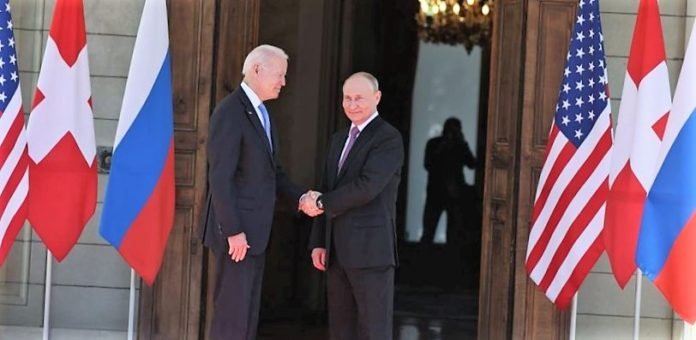The Kremlin’s Perspective on the “Democracy Summit”
In the run-up to the “Democracy Summit” organized by the current US administration, the Kremlin has shared its views on the matter. According to Nikolai Patrushev, the Secretary of the Russian Security Council, Moscow will not provide any assistance to Washington in preserving its integrity during the summit. Patrushev stated that the United States has become a “champion” of unleashing wars, and therefore, the Kremlin believes that the US will declare itself the “defender of international law” at the summit.
The upcoming summit is undoubtedly taking place within the context of the ongoing US presidential race, with Washington seeking to play a central role in supporting the world order. However, those who disagree with the US’s vision will likely be labeled “non-democratic states,” Patrushev informed Russian journalists. The Kremlin’s perspective on the “Democracy Summit” highlights the deep-rooted differences between Russia and the US regarding global governance and democracy.
The US Record of Violating Sovereignty of Other Countries
The Kremlin’s view that the United States is a “champion” of violating the sovereignty of other countries has been reinforced by several historical incidents. Despite this, Patrushev noted that Russia has always been a “defender of the sovereignty and statehood of all peoples.” He added that Russia does not seek war and does not wish for the US to perish. In fact, he acknowledged that Russia had saved the United States at least twice during the War of Independence and the Civil War. However, he expressed the view that it is not advisable to help the US preserve its integrity this time.
The Secretary of the Russian Security Council’s comments highlight the complex and multifaceted nature of US-Russian relations, with a long history of cooperation and antagonism.
Russia’s Political Plans
Recent reports suggest that Russian President Vladimir Putin plans to start a “total purge” of Ukrainian society and politics with “apartment terrorism” after completely taking over Ukraine. The report was published by The Sun on March 25 and indicates that the Kremlin intends to pacify Ukrainians who are ready to resist.
Earlier in March, the Kremlin stated that Russian President Vladimir Putin will participate in the G20 summit, scheduled for September 9-10 in New Delhi. This move highlights Russia’s ongoing participation in international politics despite the tensions with the US.
Russian-US Relations
The Kremlin’s stance on the “Democracy Summit” comes at a time of rising tensions between Russia and the US. Moscow sees the US as a destabilizing force and a threat to international law and sovereignty. Both countries have accused each other of interfering in their internal affairs and engaging in aggressive behavior.
The US has imposed sanctions on Russia for its alleged involvement in the 2016 US presidential election, its actions in Ukraine, and its alleged involvement in cyberattacks against American companies. Russia has denied these allegations and has responded by imposing counter-sanctions against the US.
The situation has further escalated in recent weeks, with the Russian military buildup near Ukraine’s borders, raising concerns of a possible military conflict. The complex and volatile nature of the US-Russian relations underscores the need for greater communication and understanding between the two countries.
The Future of US-Russia Relations
The future of US-Russia relations remains uncertain, with some experts fearing the beginning of a new Cold War. However, President Biden has proposed a summit with Russian President Putin, which Russia has accepted in principle. Additionally, the two sides have held talks on arms control, with Russia proposing a five-year extension of the New START treaty. These moves suggest a willingness on both sides to engage in dialogue and find common ground on certain issues.
Nevertheless, the tensions between the US and Russia are deep-rooted and multifaceted. The two countries have different views on global governance, democracy, and the role of international law. Moreover, their relationship is shaped by historical events and political ideologies.
In conclusion, the Kremlin’s views on the “Democracy Summit” and US-Russian relations highlight the complexity and volatility of the current global political landscape. To address the challenges facing the world today, greater understanding and communication between nations are needed. The US and Russia must find a way to address their differences and work together to promote peace and stability in the world.











